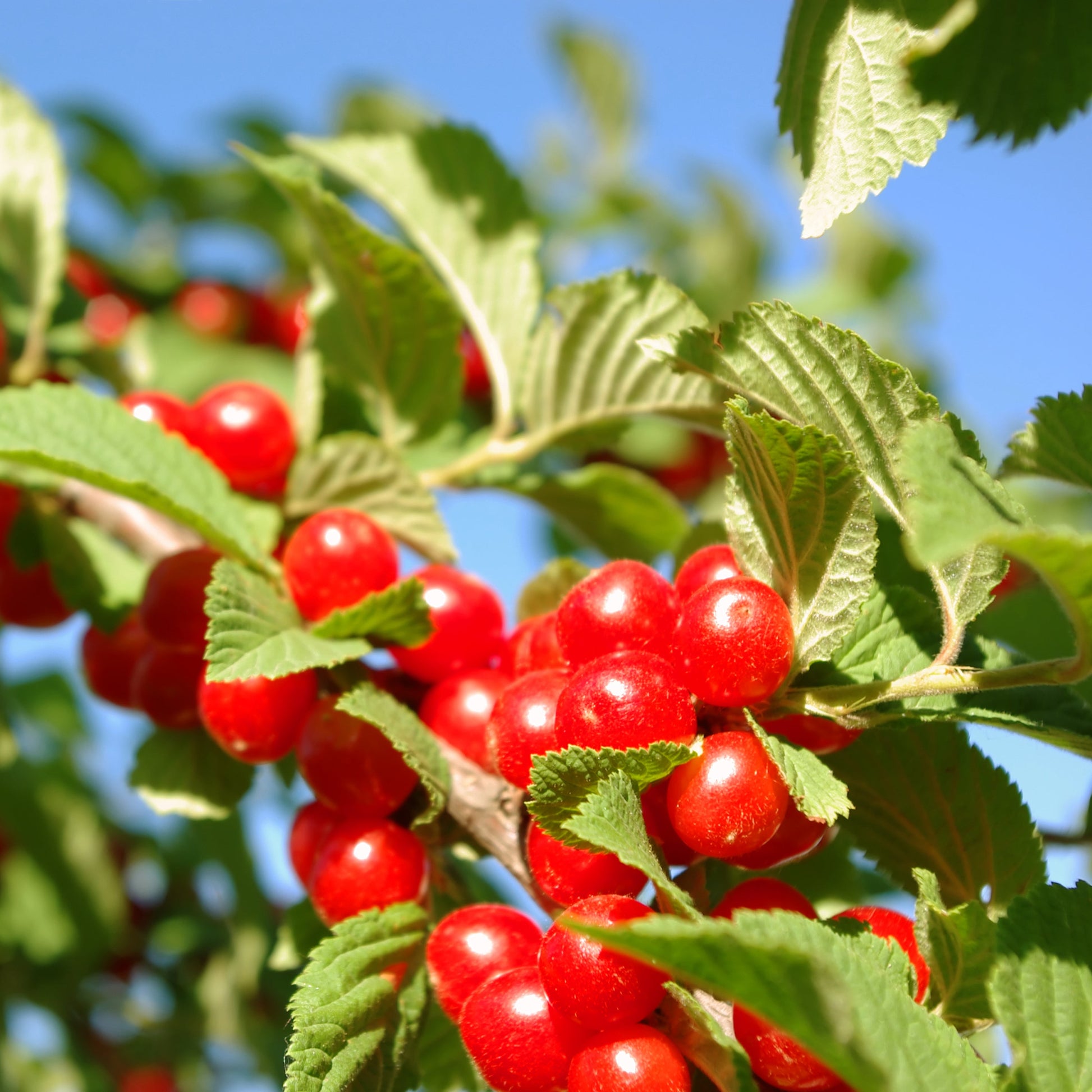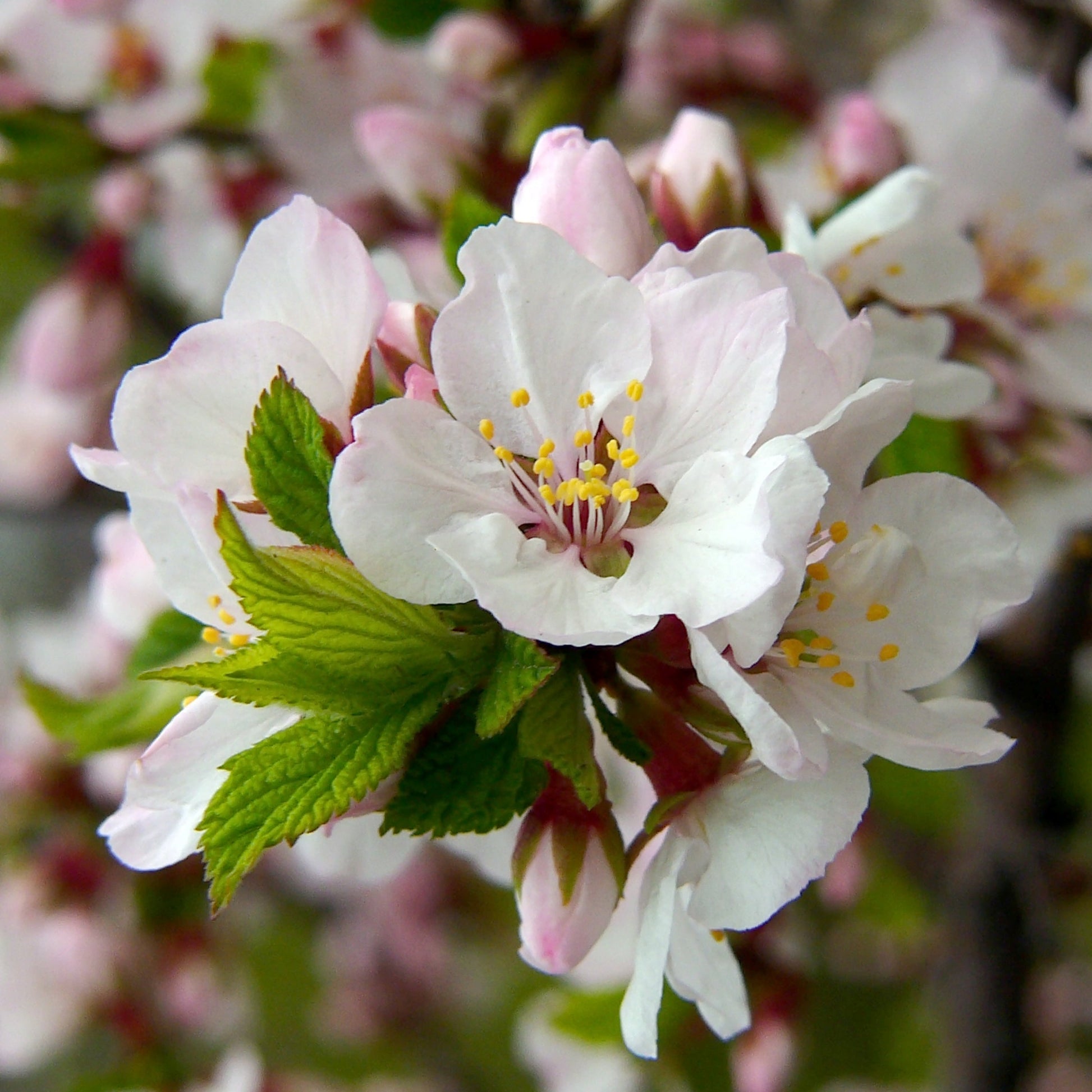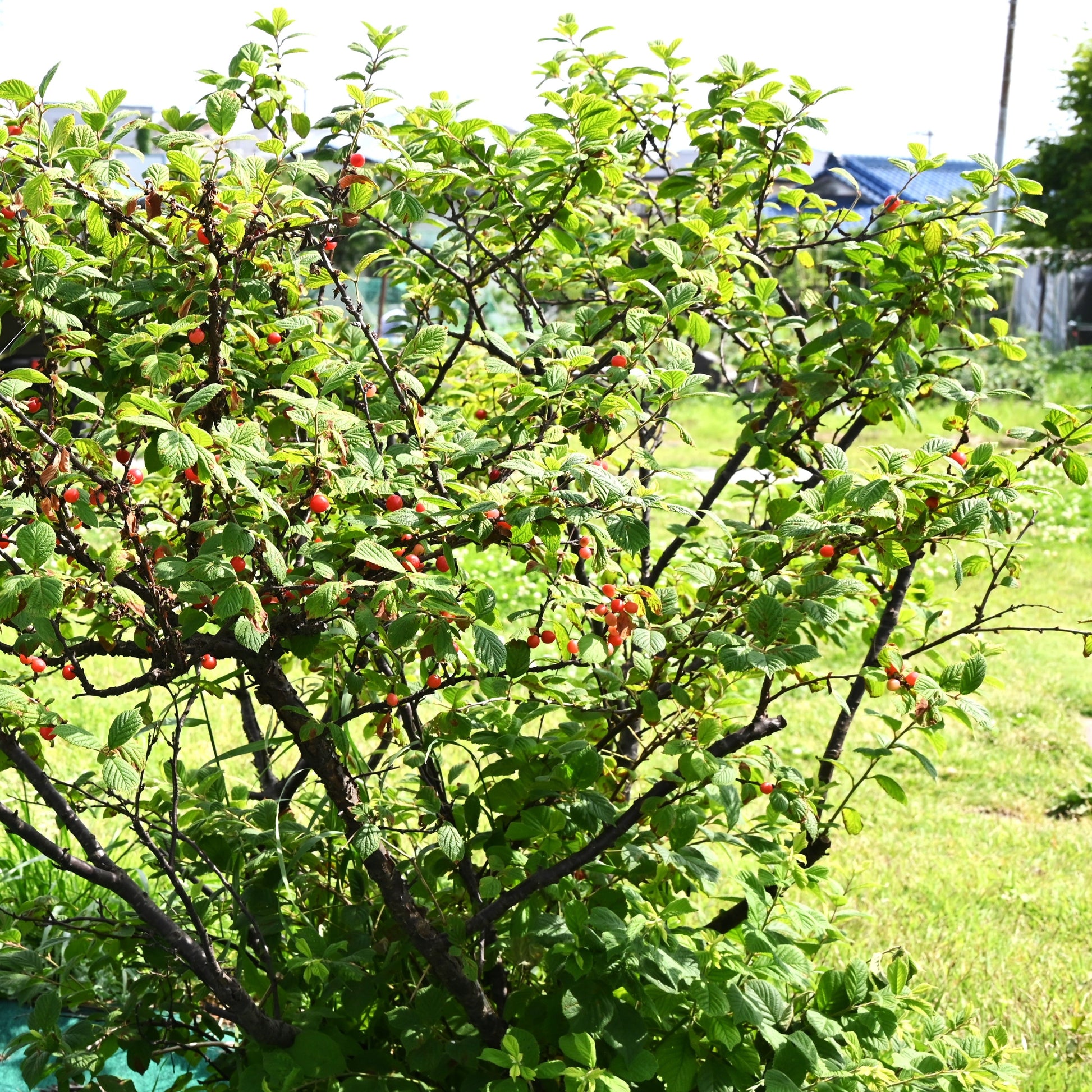Limited Quantities - Reserve Now For Fall
Nanking Cherry Tree
Nanking Cherry Tree
Couldn't load pickup availability
Prunus tomentosa
Nanking Cherry
The Nanking Cherry is a hardy, fast-growing fruiting shrub known for its early pink-white blossoms, bright red cherries, and exceptional cold tolerance. Originally native to northern China and central Asia, this ornamental edible is a favorite for hedgerows, edible landscapes, wildlife borders, and small-space fruit gardens.
Highly adaptable and ornamental, the Nanking Cherry brings seasonal beauty, sweet-tart fruit, and valuable habitat to gardens in a wide range of climates.
Nanking Cherry Overview
| Attribute | Details |
|---|---|
| 🌿 Botanical Name | Prunus tomentosa |
| 🏷️ Common Names | Nanking Cherry, Chinese Bush Cherry |
| 🌳 Mature Height | 6–10 feet |
| 🌐 Mature Width | 6–10 feet |
| 📈 Growth Rate | Fast (2–3 feet per year) |
| ⏳ Lifespan | 20–30 years |
| 🧊 USDA Zones | 2–7 |
| ☀️ Sun Preference | Full sun (essential for maximum fruit production) |
| 🧱 Soil Type | Well-drained loam, sandy, or slightly rocky soils |
| ⚖️ Soil pH | Slightly acidic to neutral (6.0–7.5) |
| 💧 Water Needs | Moderate; drought-tolerant once established |
| 🍒 Fruit Type | Small, bright red cherries with sweet-tart flavor |
| 🌸 Flower Color | Pale pink to white; blooms early in spring |
| 🐝 Pollination | Cross-pollination improves yield (plant two or more) |
| 🌿 Growth Habit | Upright, bushy, spreading form |
| ↔️ Spacing | 6–10 ft for hedges; 8–12 ft for individual shrubs |
| 🏡 Landscape Uses | Edible hedges, wildlife borders, cottage gardens, small orchards |
| 🧹 Maintenance Level | Low |
Environmental Benefits
🌸 Provides early spring nectar for bees and beneficial pollinators
🍒 Produces fruit for humans, birds, and small mammals
🌿 Thrives in poor or sandy soils where other fruit plants struggle
🌞 Offers seasonal color, habitat, and edible yield in one tidy shrub
Pros & Cons
| ✅ Pros | ⚠️ Cons |
|---|---|
| 🍒 Sweet-tart cherries are great for fresh eating and jelly | 🐝 Requires another Nanking Cherry nearby for best fruit yield |
| 🌸 Showy early spring flowers add ornamental value | 💧 Needs consistent watering during establishment and dry spells |
| 🌿 Adaptable to poor, dry soils with minimal care | ✂️ May require occasional pruning to manage form or promote airflow |
| 🧬 Extremely cold-hardy and reliable in northern climates | 🐦 Wildlife may harvest fruit before humans can |
| 🏡 Compact, bushy form ideal for edible landscapes | ❄️ Early blooms may be vulnerable to late frost in some regions |
Planting & Care Guide
🛁 Water thoroughly after planting and throughout the first season
🕳️ Dig a hole twice as wide as the root zone; plant at original soil depth
🌾 Apply mulch 2–3 inches deep to regulate moisture and reduce weed competition
💦 Water regularly during fruiting season; reduce once fully established
✂️ Prune in late winter to remove old wood and improve air circulation
🧪 Fertilize in early spring with a balanced fruit or shrub food for best production
The Nanking Cherry is a hardworking edible shrub that delivers beauty, biodiversity, and a sweet harvest in even the harshest climates. Whether planted for a hedge, a snack, or the spring show, it offers early color, cold-hardiness, and cherry cheer with very little upkeep.
Share






